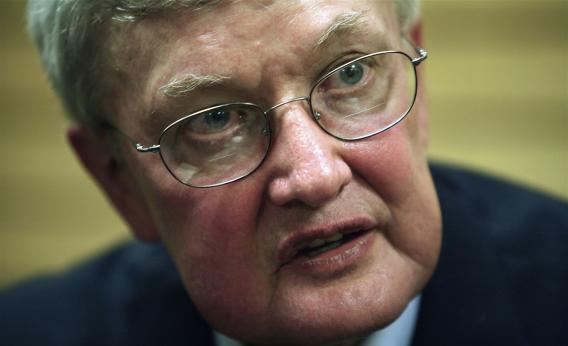“I look to books for facts and to movies for feelings,” Roger Ebert wrote in Slate in the 2001 Movie Club, debating the magazine’s then film critic David Edelstein. His writing for Slate, in four Movie Clubs spread over 10 years, exhibited that love of movies that made him feel—from A Beautiful Mind, which he was arguing about with Edelstein, to Precious, which (he wrote in 2009’s Movie Club) “breaks through filters and connects directly.”
He had no patience, in general, for critics who didn’t write for real movie audiences. “In insular, media-obsessed, buzz-driven markets like New York,” he wrote in the 1999 Movie Club, “I wonder whether some critics, especially newcomers on the make, don’t position their reviews primarily to position themselves. The real reason Pauline Kael was revolutionary was that she wrote for actual moviegoers like herself, and evoked their needs and desires.” That consideration of non-critic viewers often led Ebert to populist movie loves a bit out of step with other critics—loves he defended passionately, as in these 1999 declarations about The Green Mile:
“The average moviegoer with $8 and a seat in an Abilene multiplex is likely to find himself or herself subtly more complex, humane, and liberal after seeing that film than before. It is reductive and stereotyped to a media cineaste, but perhaps the best and most evolved movie that many of its viewers will see all year … The Green Mile is an important and worthy fact of popular culture—not sophisticated, not as hard-edged or accurate or courageous as it could be, but more a part of the solution than a part of the problem. Here is an obviously unprovable guess: For 50 percent of the people who see it, it will be the best movie they see all year, even from your point of view.”
That said, Ebert was in tune not only with the coastal critical catfights (his tweaks of Jeffrey Wells in the 2009 Movie Club were delightful) but with advances in cinematic technology: As early as 1999 he was writing worriedly about the effect of digital projection on the warmth and history of film. He was no technophobe, though, as he showed in 2009 when he schooled me on Netflix streaming video.
In the 2001 Movie Club, Ebert warmly remembered Kael, who had died earlier that year, as “talking, always talking. All the praise for her writing could be applied as well to her conversational style, so alive and unforgiving.” It’s a fascinating statement as delivered by Ebert, a critic who—despite publishing an entire book, Your Movie Sucks, of his greatest pans—will be remembered for his own conversational style, so alive and forgiving. He loved movies. (His last written words: “I’ll see you at the movies.”) And he loved talking about them—in newspapers at first, on TV, and then, in his glorious and productive final years, on the Internet. I felt a not uncinematic frisson when, reading through his writing for Slate, I landed on his sign-off from the 2001 Movie Club: “I am departing at dawn,” he wrote, “for a place where it will be hard to get online, but not, I hope, impossible and will try to check in again later.”
